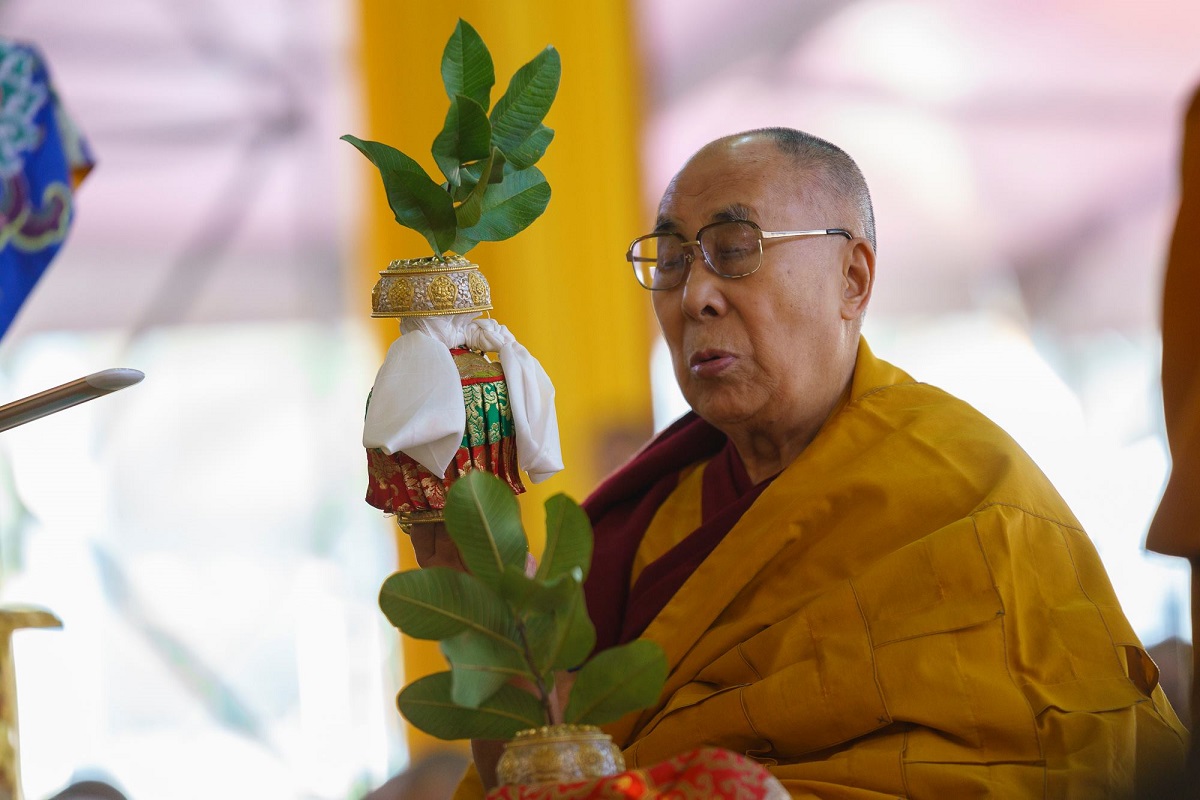Power projects in Himachal not complying with terms set by govt will be taken back: CM
Sukhu said this while responding to a question by MLA Neeraj Nayar during the question hour in the State Legislative Assembly on Tuesday.
He was according teachings on Gyalsey Thokme Sangpos’s Thirty-Seven Practices of a Bodhisattva (laklen sodunma) in the morning for Tibetan youth at the main Tibetan temple on Monday.
Statesman News Service | Shimla | June 3, 2019 8:47 pm

His Holiness the Dalai Lama performing preparatory rituals before giving the Yamantaka Empowerment on the last day of his teahing in Bodhgaya, Bihar, India on December 26, 2018. (Photo by Lobsang Tsering)
Tibetan spiritual leader Dalai Lama on Monday admired secularism in India and lauded the country for promoting and respecting freedom of religion to everyone.
He was according teachings on Gyalsey Thokme Sangpos’s Thirty-Seven Practices of a Bodhisattva (laklen sodunma) in the morning for Tibetan youth at the main Tibetan temple on Monday.
Advertisement
He began the teaching by reflecting back to the historical time when the first civilisation of human beings originated and said 7th-century king of Tibet, Songtsen Gampo, invented Tibetan script based on India’s Sanskrit script.
Advertisement
Later, during the reign of King Trisong Dhetsen of Tibet, on the advice of Shanta Rakshita, the Tibetan language was first used as the medium to instil and spread Buddhism in Tibet.
Likewise, many works of literature and texts covering vast and profound knowledge of ancient Indian literature were also translated into Tibetan. He acknowledged that he is eternally indebted to the ancient Nalanda masters and scholars.
He admired the great 17 masters of Nalanda tradition and said, “We can tell it from their writings that they are great masters, not by their miracles or anything like that. The great writings of the masters can still be studied to date.”
Dalai Lama elaborated Buddha’s three turnings of the wheels of Dharma and emptiness according to which the emptiness refers to not nothingness, but something which we cannot identify when we further break down the object that we can see, which also means they do not exist the way they appear to us.
This concept of emptiness is also accepted in Quantum Physics, he added.
He emphasised on studying Tibetan Buddhism through logic, reason, and debate and highlighted the importance of Logic to develop the understanding and Intelligence of an individual.
“We should be proud of being Tibetan and descendants of our ancestors. Buddhism, which came to Tibet from the Nalanda tradition, Logic, Psychology and Philosophy should not be regarded as a religion but academic subjects,” he said.
He also advised to practice compassion towards others through the practice of giving and taking that is if somebody demeans you, taking others’ negativity within yourself while giving out compassion.
He further advised to restraint negative actions of body, speech, and mind for the well being of others.
“Tibetans in Tibet are very strong and have an undaunted spirit to preserve Tibetan Buddhism despite the unquestionable control exerted by the Chinese government on religion. But in exile, in a free country, we have the opportunity to preserve and promote the vast tradition of Buddhism so do your best,” he added.
Advertisement
Sukhu said this while responding to a question by MLA Neeraj Nayar during the question hour in the State Legislative Assembly on Tuesday.
Sukhu was responding to the discussion on the cut motion proposal brought by the opposition in the state assembly on Monday.
Himachal Pradesh Deputy Chief Minister Mukesh Agnihotri has said that to eradicate the growing problem of 'Chitta' in the state, it is necessary to fight against it on a war footing.
Advertisement
